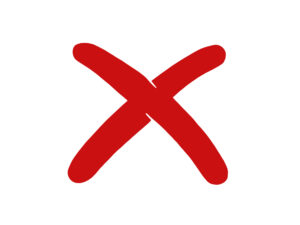Is Starbucks an ethical brand?
Founded in 1971 in Seattle, Starbucks is now the world’s largest coffeehouse chain. It provides a variety of hot and cold beverages as well as speciality seasonal drinks. Starbucks unfortunately receives one of the lowest scores on The Good Shopping Guide’s Ethical Coffee Ratings Table and as a result, cannot be classed as an ethical coffee brand.
The Ethical Coffee Ratings Table can show you where Starbucks ranks against other coffee brands and help you to learn more about the criteria that needs to be met for a brand to be classed as ethical.
Where does Starbucks score well?
Starbucks scores well under Fossil Fuels, Armaments and Nuclear Power, due to its lack of negative records.
For more information about our research methodology, see how we rate here.
Where does Starbucks score poorly?
Starbucks receives a bottom score for its Public Record Criticisms from The Good Shopping Guide. On multiple occasions, Starbucks has been accused of unethical practices. This includes allegations of racism, workers’ rights abuses, plastic pollution and other poor environmental practices.
Starbucks receives a bottom score from The Good Shopping Guide under our Organic and Fairtrade categories as none of its at-home products are organic or Fairtrade certified.
What can Starbucks do to improve its score?
Starbucks’ ranking on the Ethical Coffee Ratings Table is the result of The Good Shopping Guide’s calculation of multiple ethical criteria. In order for Starbucks to meet our minimum ethical benchmark and see its position rise on our table, it has to solve some problems. This includes its Fairtrade status and history of Public Record Criticisms.
Do you manage or own an ethical coffee company? Perhaps you roast, grow, sell, or market beans or grinds from a single origin, or you have a strict policy requiring suppliers to be traced? Maybe you exclusively use organic or Fairtrade beans, and you genuinely care about serving high-quality coffee at every point in the supply chain. To start the process, contact us or complete our Free Initial Assessment form.
Ethical performance in category
GSG score
GSG category benchmark
Ethical Rating
Environment
-
Environmental Report
Good
-
Organic
Poor
-
Nuclear Power
Good
-
Fossil Fuels
Good
Animal
-
Animal Welfare
Poor
People
-
Armaments
Good
-
Political Donations
Poor
-
Fairtrade
Poor
Other
-
Ethical Accreditation
Poor
-
Public Record Criticisms
Poor
-
Public Record Criticisms+
Poor
= GSG Top Rating = GSG Middle Rating = GSG Bottom Rating
